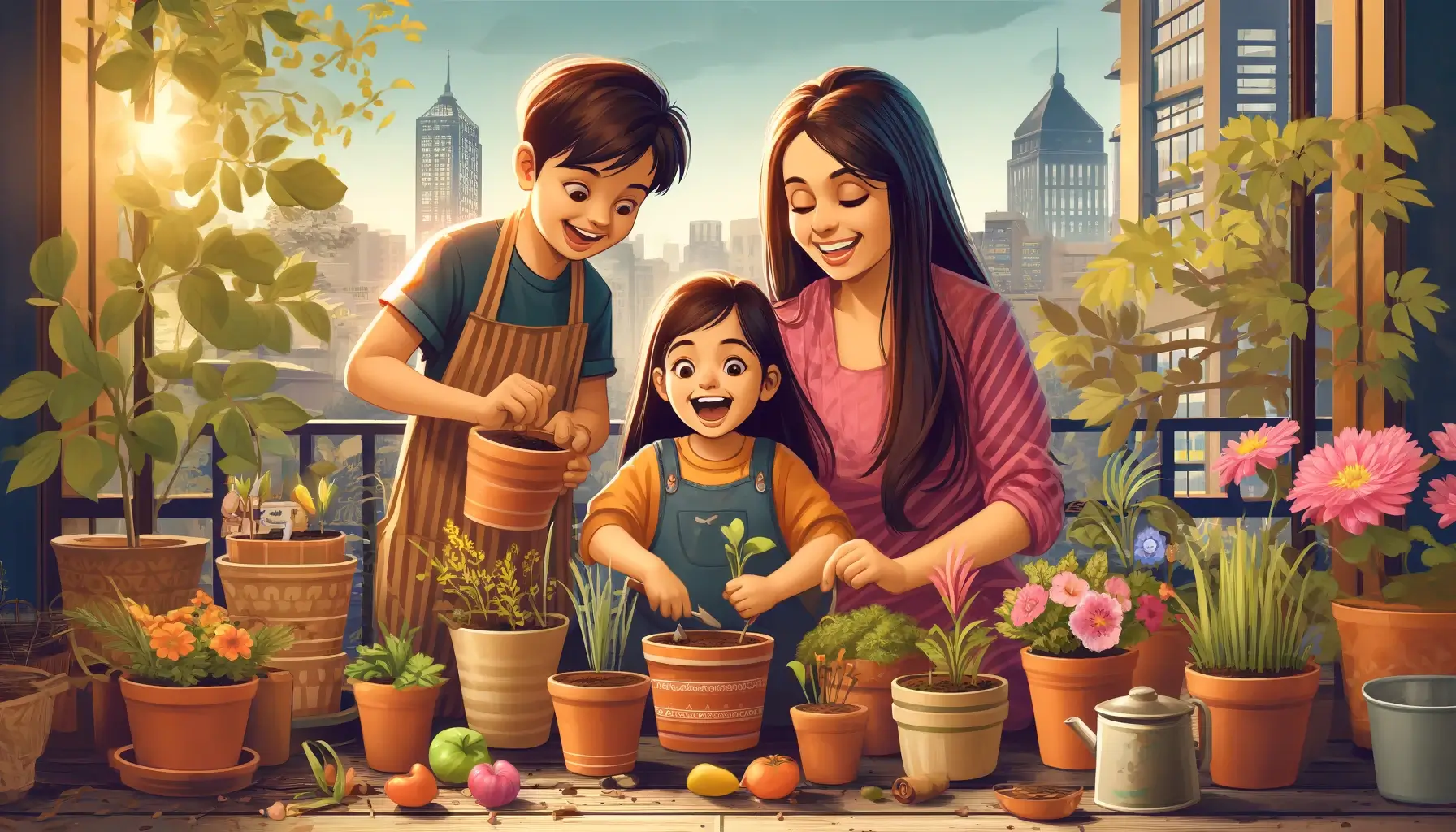
Gardening is more than an enjoyable outdoor activity. It vastly affects the cognitive development of children, their creativity, and emotional well-being. According to the many surveys and research, gardening could amass a boost in the IQ and overall developmental health of a child interacting with it.
Brain and Sensory Stimulation
Gardening is very much a hands-on activity that engages all the senses. Children can quite easily perceive the different textures of leaves, petals, and soil, smell the different scents of flowers and foliage that they tend to and also admire the different colors and shape. If you have a vegetable patch or grow edible plants like herbs, they can even engage their taste buds.
This sensory play is essential for building nerve connections that support brain development, and it plays an important role in encouraging problem-solving, curiosity, and creativity.
The Cognitive Benefits of Green Spaces
A team led by Hasselt University in Belgium, involving 620 children aged between 7 and 15 years old, found that growing up in greener urban environments tends to boost children’s intelligence and minimize their behavioral problems. Its findings speak about a 3% increase in green space, providing a 2.6-point improvement in IQ.
Higher green space levels are also associated with fewer incidences of aggression and hyperactivity, as shown by the data collected from children studied across all social-economic groups.
Motor Skill Development
Gardening is also a wonderful way for children to exercise and develop a wide variety of both gross and fine motor skills. Gross motor skills, involving large muscle groups, are used for tasks like balancing and walking. Fine motor skills, involving small muscle groups, are used for intricate tasks like tying shoelaces or using a pencil.
Gardening requires children to use tools and handle small objects like seedlings, which enhances these skills. These motor skills are transferable to many creative pursuits in the future, such as painting, sculpting, and drawing.
Emotional Health and Improvement of the Stress Level
Daily gardeners report higher levels of well-being and lower stress levels. The repetitive movements in gardening, combined with being surrounded by nature, can serve as a distraction from the stresses of work and personal life, allowing the individual to concentrate on the moment at hand.
Reduced stress levels enable better access to creativity and inspiration from the world around us. This is likely to allow those young students to instead do activities that take away stress, be more in the moment, and find their creative side.
Creativity and Responsibility
Allowing the child to have a piece of garden that is all their own helps them to exercise their creativity by choosing the kinds of plants and how to place and arrange them. As they see the life and appreciated growth in their plot of land, they gain a sense of accomplishment that will do wonders for their self-esteem and confidence.
This, in turn, empowers them to be expressive about their creativity later in life. Even a large plant pot can be enough to get them started and teach them responsibility as they take charge of watering, fertilizing, weeding, and trimming their own little patch of outdoor space.
Nature and Intelligence: The Bigger Picture
The benefits of spending time in nature on general health and well-being are widely recognized. Some simple gestures, like planting a tree or hugging one, can actually make a person happy, lower anxiety, and even fight loneliness.
A perfect word to explain this very basic human need for nature was defined by the biologist Edward Wilson: ‘biophilia.’ This exposure to green spaces in urban areas reduces noise and air pollution, provides physical and social activity, and also mitigates the effects of stress, hence improving memory and focus.
Conclusion
Gardening is a very enriching activity that offers many developmental benefits for kids. The activity helps develop kids’ IQ through sensory engagement, cognitive development, and enhancement of motor skills. At the same time, it contributes to nurturing creativity, emotional well-being, and the sense of responsibility in children’s lives. In the bigger picture, children gardening can equip one with life skills and connection with nature to secure one’s future life with a bright and intelligent time.
So, the next time you have some free time, head out to the yard and let your kids explore their creative side through gardening. It’s a simple yet powerful way to contribute to their cognitive and emotional growth.
For more information on beginning your gardening journey with quality heirloom seeds, please visit our site, where you can find our wide selection of seeds suited to create your lively and learning garden for your kids. Happy gardening!




